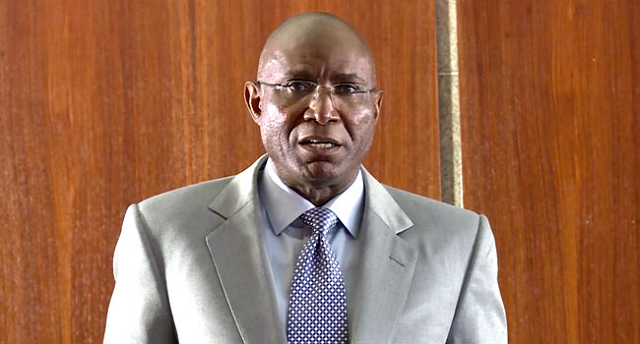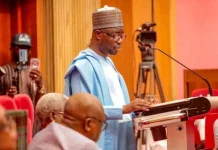The Deputy Senate President, Ovie Omo-Agege has revealed his standpoint on the clause regarding electronic transmission of results in the newly passed electoral act amendment bill.
The two chambers of the National Assembly at separate sessions passed the bill — there were very heated debates for and against over electronic transmission of results.
The Senate had passed the bill, giving the Nigerian Communications Commission (NCC) powers to certify coverage, subject to approval by the National Assembly, before INEC can be allowed to adopt electronic transmission of election results.
The House of Representatives stated that INEC can take the decision on electronic transmission “where practicable”.
The media aide to the Deputy Seate President, Efe Duku in a statement released Saturday gave the reason why his principal voted against allowing INEC full powers to decide on the transmission of results electronically.
READ ALSO: Alakija Bemoans Speculations Attributing Her Oil Bloc Acquisition To Maryam Babangida
According to him, supporting the decision to allow electronic transmission of results in all areas of the country would be “discriminatory”, considering the position of the Nigerian Communications Commission (NCC) that there isn’t network coverage across the country.
“The Distinguished Senator Ovie Omo-Agege did not vote against E-Transmission of election results. Rather, the Deputy President of the Senate wisely and courageously voted for an amendment to Clause 52(3) of the Bill (on E-Transmission) to guarantee secure E-Transmission of all election results and uniform application of E-Transmission everywhere in the country, not just some parts of it,” the statement reads.
“In simple terms, the Obarisi of Urhoboland voted to support an amendment that ensures, for example, that INEC does not transmit only election results in Urhobo electronically while other areas may have their results transmitted otherwise and safely. For him, all election results must be treated equally under a uniformly applied standard.
“Indeed, Senator Omo-Agege as an erudite lawyer knows that it is unconstitutional for the National Assembly to enact an Electoral Act that is inherently discriminatory in its design and intended application. For him, to pass the test of constitutional validity, the law must apply uniformly to all electoral domains in the country, otherwise such a law could be easily struck down by a court if taken for judicial reviews by those who may be negatively impacted.
“Further, in arriving at his thoughtful decision, Senator Omo-Agege was guided by unimpeached data from the Nigerian Communication Commission (NCC) that E-Transmission of results is only possible in less than 50% of all electoral domains in the country.
“For him, the message from this data is that if INEC is allowed unfettered E-Transmission power, then there will be unequal treatment of election results and that would be a fundamental lawmaking flaw. So, he stood firm to prevent such a move that would have led to a needless waste of legislative resources and time.”












